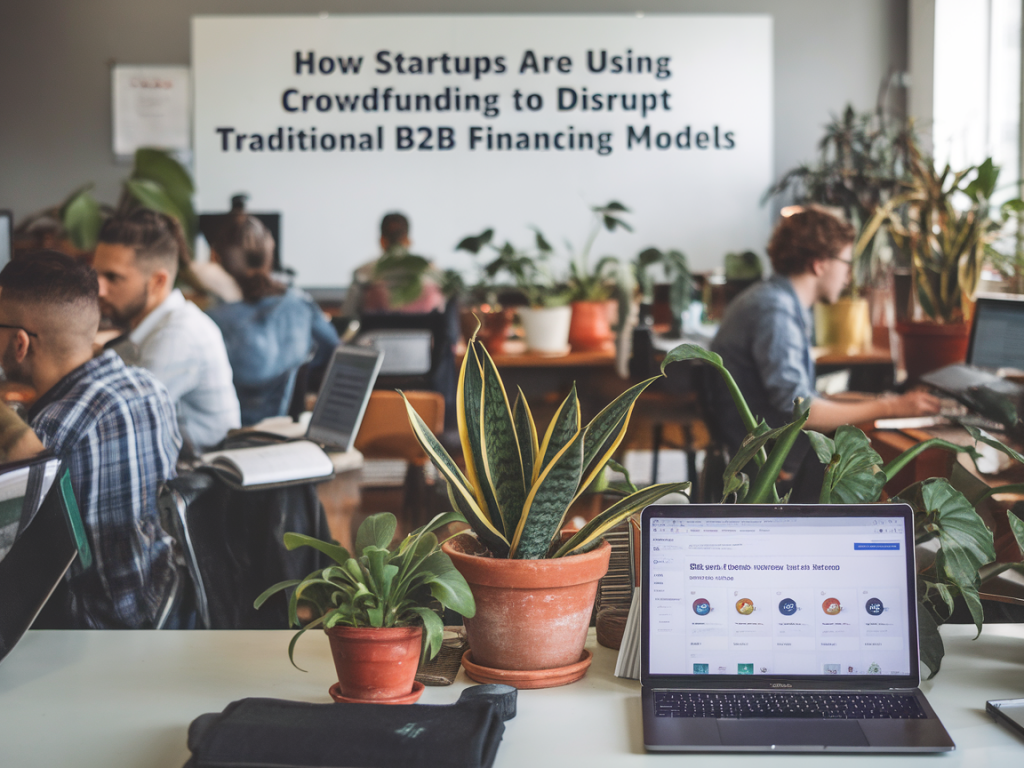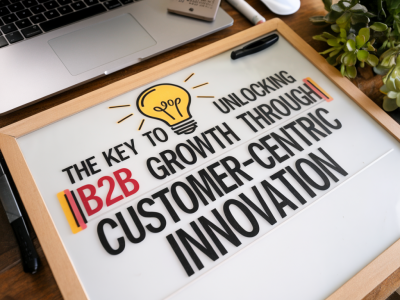
Crowdfunding has revolutionized the way businesses, particularly startups, approach financing. While traditionally, B2B financing models have relied on banks, venture capital, or private equity funding, innovative entrepreneurs are now turning to crowdfunding platforms to disrupt the modus operandi. This shift is not just about accessing funds; it’s a statement about redefining how businesses interact with investors, clients, and even competitors in the ever-changing B2B landscape.
Why Crowdfunding Appeals to Startups in the B2B Space
For many startups, navigating the rigid structures of traditional B2B financing can feel like a marathon with oversized hurdles. Banks require years of financial history, venture capitalists expect a finely tuned pitch with exponential growth prospects, and private equity deals come with their own sets of strings. Crowdfunding, on the other hand, levels the playing field.
Platforms like Kickstarter, Indiegogo, and Seedrs have become fertile ground for startups looking to demonstrate the value of their ideas directly to an engaged audience. The appeal lies largely in the inclusivity and democratization of investment. Why wait months to secure one ‘big’ investor when hundreds of supporters are willing to fund your venture in exchange for early access to your product, perks, or equity?
B2B startups are increasingly leveraging this model to not only raise capital but to validate their ideas. For example, Berlin-based tech startup Elucidate used crowdfunding to test the market for its regulatory risk management platform. By engaging with a community of early backers, the company was able to fine-tune its offering based on real feedback before officially entering the market.
Key Benefits Crowdfunding Brings to B2B Startups
Crowdfunding isn’t just about money—it’s a versatile approach that aligns perfectly with the adaptive and innovative nature of startups. Here are some key benefits:
- Market Validation: Launching a campaign requires you to communicate your value proposition. If the campaign resonates, that’s an immediate signal that there’s market demand for your solution.
- Community Building: Crowdfunding isn’t just transactional—it’s relational. Early backers often become brand evangelists who help spread the word, adding layers of trust to your brand.
- Reduced Dependency on Institutions: Freed from the strings of traditional financing, startups can retain more control over their business decisions.
- Accelerated Go-to-Market Strategies: Unlike traditional funding, which can drag on for months, crowdfunding campaigns often culminate in a pre-launch event. This bridges financing efforts with product rollout seamlessly.
Crowdfunding Models Startups Are Adopting
What’s great about crowdfunding is its adaptability. Startups operating in the B2B arena are using different crowdfunding models to complement their business strategies:
- Reward-Based Crowdfunding: This is commonly associated with platforms like Kickstarter and Indiegogo. For B2B startups, offering tangible rewards such as discounted software licenses, early access to beta versions, or exclusive tools can be enticing for both backers and potential future clients.
- Debt Crowdfunding: Platforms like Funding Circle allow startups to borrow directly from individual lenders, bypassing the red tape commonly associated with banks. This model is especially relevant for B2B startups with predictable cash flows looking for liquidity.
- Equity Crowdfunding: Sites like Seedrs provide a means for startups to raise funds by offering equity stakes. This is significant for B2B businesses targeting large-scale operations and who want to bring in partners rather than one-time funders.
Real Examples of Startups Reshaping B2B Finance
Let’s take a closer look at companies that have successfully leveraged crowdfunding to disrupt traditional financing:
- Monzo: Although a largely consumer-focused venture, Monzo’s crowdfunding journey has lessons for B2B startups. With over £20 million raised via equity crowdfunding, Monzo demonstrated the value of building a loyal investor community early on.
- The Cheeky Panda: This UK-based sustainable product supplier initially gained momentum through equity crowdfunding on Seedrs. The B2B side of their business exploded upon successfully portraying the eco-friendliness of their bamboo-based products to retailers and corporate buyers.
- Flow Hive: While primarily a consumer-oriented startup, their crowdfunding success indirectly drew B2B attention, resulting in partnerships with commercial agriculture-focused enterprises.
How Can Crowdfunding Integrate With Traditional Models?
A lingering question for startups is: Does crowdfunding replace traditional models entirely? The answer is nuanced. For many businesses, crowdfunding acts as the first domino, propelling the venture to a stage where other forms of B2B financing become possible. Crowdfunding campaigns can establish credibility, create buzz, and deliver early traction—all of which are critical when approaching venture capitalists or banks.
For example, a SaaS startup raising an initial £500,000 via equity crowdfunding might eventually catch the eye of institutional investors. Because the company has demonstrated demand and offered transparency during crowdfunding rounds, subsequent fundraising becomes smoother and more impactful.
Challenges Startups Face with Crowdfunding
Of course, crowdfunding is not a silver bullet. Considerable effort is required to craft a compelling campaign that resonates with backers. Common challenges include:
- Campaign Fatigue: Crowdfunding is a time-bound effort. You’ll need a focused marketing strategy to sustain interest from start to finish.
- Unrealistic Expectations: Sometimes, campaigns exceed funding goals. While this sounds ideal, it can lead to logistical nightmares when startups are unprepared to deliver on time.
- Communication Gaps: After the campaign closes, maintaining transparency with backers can be a make-or-break factor for long-term trust.
Despite these challenges, the benefits of crowdfunding are undeniable. It’s not just a tool for securing capital but an enabler for smaller B2B players to step into the spotlight, compete against incumbents, and redefine how businesses are built in the modern era.

